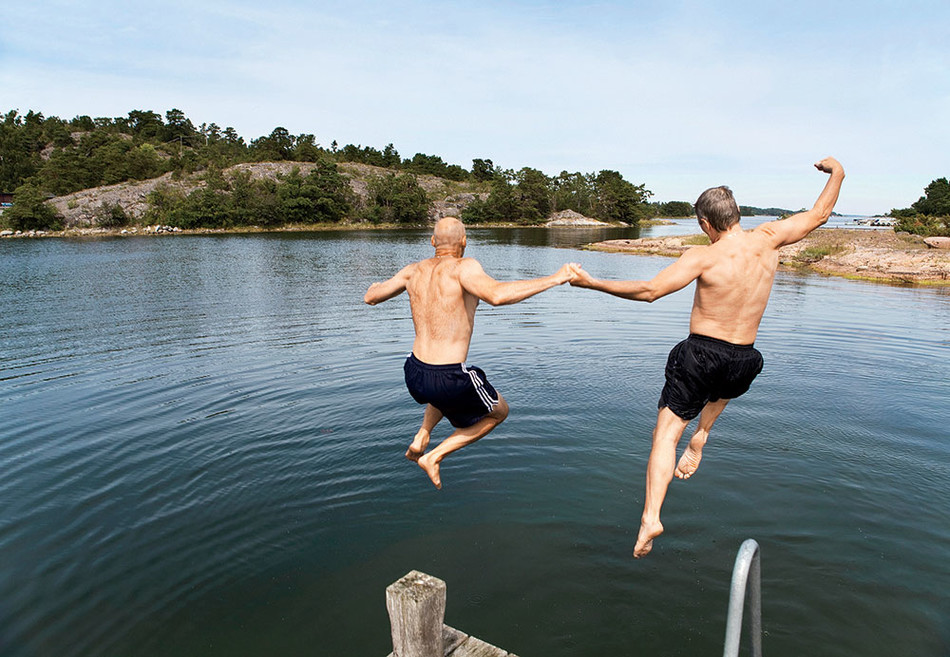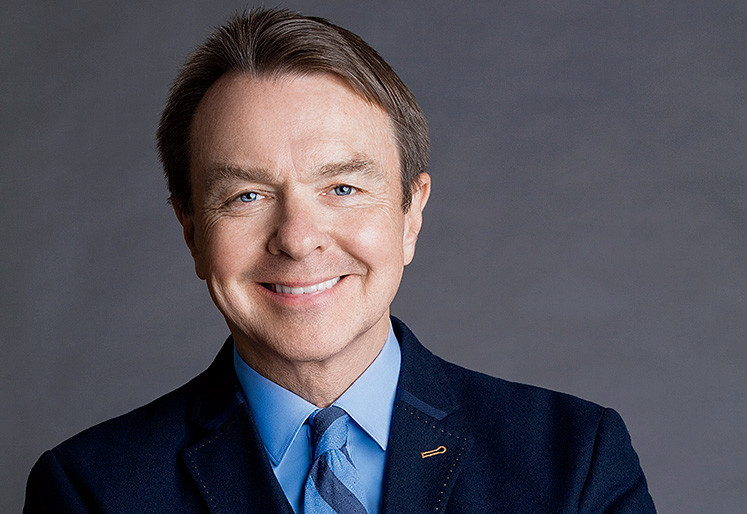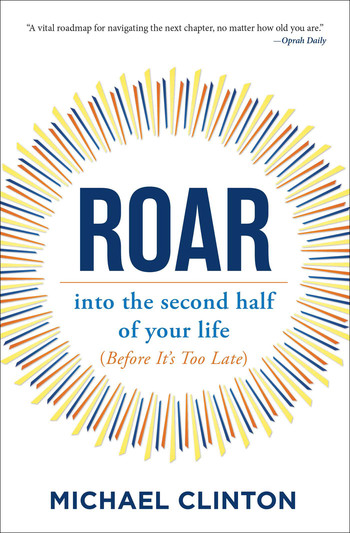Michael Clinton ’21SPS — author, adventurer, pilot, photographer, and philanthropist — has made it his mission to challenge cultural and self-imposed ageism. In his book ROAR, and on his ROAR Forward website, he invites us to think about midlife as a time not of crisis but of new opportunities and personal growth.
You want to banish the word “retire” and change it to “refire.”
The word has to be challenged because it’s obsolete. Retirement is a construct. It was created in the 1930s along with the Social Security Act to move older people out of the workforce. Over the years, media and culture — and even the establishment of Medicare in the 1960s — has pretty much reinforced the idea that it’s all downhill from sixty-five. But we’ve added decades to our life expectancy since the 1930s. Today, if you’re fifty and healthy, there’s a real possibility that you will live to be ninety or older. It’s time for a new script for those extra decades. I want to encourage people to reimagine their “favorite future” and move toward it with purpose.
But what if you’re approaching midlife and feeling stuck?
It’s a common problem, because we’ve been wired to think of these first years of the second half of our lives as the beginning of the end rather than as the start of an exciting new chapter. It’s time to confront these self-limiting beliefs. Our increased life expectancy is a gift, and this is the time to redefine who you are and how you live. Perhaps you want to launch a second career, become an entrepreneur, go back to school, get into better shape, or make some major changes in your relationships. It’s totally possible to do all those things if you’re prepared to reimagine and redesign the second half of your life. My ROAR manifesto helps you do just that: it asks you to Reimagine yourself, Own who you are, Act on what’s next for you, and Reassess your relationships.
You are the former president and publishing director of Hearst Magazines. You’ve traveled to 126 countries, founded a nonprofit, written eleven books, earned two master’s degrees, and at sixty-nine are about to trek to Everest base camp. You seem determined to prove that we can achieve any goal at any time.
I want to show people what is possible and to underscore our need for new role models for people in their sixties, seventies, eighties, and beyond. For ROAR, I interviewed forty men and women who refused to let age stop them from pursuing their goals. Stephanie Young decided to become a doctor at fifty-three, McGarvey Black published her first novel at sixty-two, Alan Webber, the mayor of Santa Fe, became an elected official for the first time at sixty-nine. These “Re-Imagineers,” as I call them, are all curious, engaged, and growing. They are redefining what it means to live longer.
Your Columbia degree is in nonprofit management. How important is philanthropy and service to a long and meaningful life?
It’s essential. We all have a fundamental responsibility to be of service. It takes us out of our egocentric lives, brings fulfillment, and helps us better understand and appreciate others. I serve on multiple nonprofit boards and started a foundation in 2010 to help individuals and families in need. My Columbia degree was a way to gain more insight into how I could better contribute to the world. It also helped reignite my love of lifelong learning, which contributes to healthy aging.
The Butler Columbia Aging Center offers a course through the Mailman School of Public Health that asks undergraduates to imagine living to be one hundred years old. If you were a guest speaker in that classroom, what would you want students to know?
I’d want them to know that age is a diversity, equity, and inclusion issue, and in the midst of all the important DEI efforts that are underway, ageism — which affects everyone, regardless of race, gender, or ethnicity — is too often ignored. I would also want them to know that change is coming. The baby boomers, a huge demographic cohort that accounts for trillions of dollars in spending power, are leading the charge. They’re tired of being ignored by the government and corporate America and are challenging the way they’re portrayed in marketing and in the media. As they continue to vote at the polls and with their dollars, they are going to support candidates and brands that speak to the huge wave of older Americans who remain fit, tech-savvy, vital, and involved. The baby boomers are famously activist. They embraced civil rights, the women's movement, Earth Day, and more. Now they are taking up their next cause and challenging our notions of aging, not just for themselves but for future generations.





